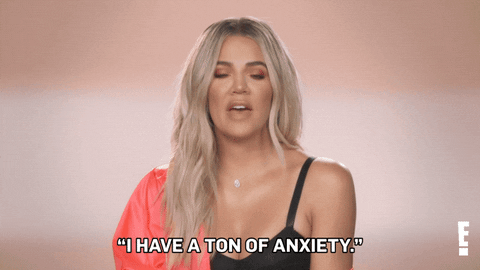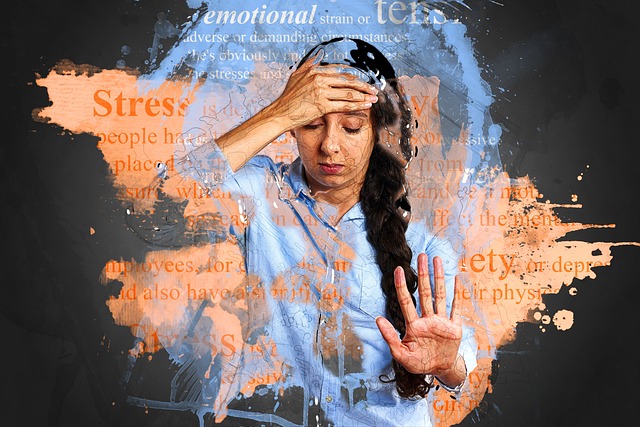



If you’re a nervous wreck, we have a quiz that can help you determine the severity of your issues. It’s not an official diagnosis! However, it may put you on the right track. You’ve got this :)) If you want to get a grip on your anxious thoughts, here are a few practical coping strategies.

Getting an official diagnosis of anxiety disorder might be out of reach for many people. It’s not ideal, but sometimes we work with what we have. There are strategies that even therapists use in their work with clients. They may not fully replace treatment but could assist in managing fearful thoughts when they arrive or help with long-term anxiety.
The skills we suggest here are easy to implement and flexible, and you can use them at home or wherever and whenever you need them. Of course, they need practice like any other skill. It’s like with strength training (or just exercise in general) – you won’t see progress after lifting one time! Or like riding a bike – you might stumble and fall the first few times, but if you keep at it, you’ll be blasting on your bike in no time. So, jump on that anxiety bike and keep paddling, that is, using those brand new coping skills.
Can we have an honest conversation? Are you a toxic person?
Have you checked in with your physical state lately? Combating an overactive mind begins with taking care of the most basic needs. Sometimes just learning how to relax your muscles and regulate your breathing can help you feel more in control of your body.
Find a cozy spot and place your hand on your belly. Take a nice deep breath through your nose for about 4 seconds.It should be deep enough that your hand rises. Keep the air in your lungs for another 4 seconds and release slowly for 6 seconds, exhaling through your mouth like you’re blowing through a straw. Keep at it for a few minutes.
There – you just executed a deep breathing approach. It’s easy and inconspicuous. You can use it in any “deep breaths, everybody” situation.
Anchor breathing is another handy method of managing anxiety. Think about a boat, that anchor point that makes you feel secured and calm. Find the anchoring point on your body – is it your belly, your chest, or your rib cage? Wherever it is, put your hands there. Breathe in and out. If your thoughts stray, gently pull your attention back.
You might not even know how much stress your body holds, but the progressive muscle relaxation exercise will help you be more aware of that tension.
To practice it, sit down or lay down comfortably. Begin with your feet: curl your toes tightly (but not too tightly) and hold for 10 seconds before releasing. See how different relaxed muscles feel from tight muscles? Repeat the process for the rest of your body, including your calves, thighs, stomach, back, arms, and all the way to your face. Finally, hold the tension in your whole body for 10 seconds and let go.
Have you heard about the “Leaves on a Stream” method? In this mindfulness exercise, you can assume a position of an objective observer, detach yourself from any overwhelming feelings and gain a clearer understanding of your internal state.
Imagine yourself resting by the side of a stream. Breathe slowly and focus on the stream. When a thought pops into your mind, don’t fight it, observe it without prejudice. Then, place that thought on a leaf and allow it to drift away. That’s all there is to it; you don’t need to do anything else. Just noticing and releasing your thoughts.
They’ve told me I’m too sensitive…
Think about a location that invokes positive feelings in you. It could be a quiet beach or a bustling city square – whatever feels comforting. Allow your thoughts to focus on that place for several minutes, imagining it in great detail. Engage all your senses in this imaginative play.
Take note of any audible or olfactory sensations. Think how the air in that place feels on your body, how the ground (wet soil? soft sand? hard cobblestone?) feels under your feet. Are you eating something delicious? Is it sweet, spicy, sour? Appreciate anything that makes you feel good about that place. Envision yourself there, and give it your full attention.
What is the idea behind this strategy? Basically, you center yourself and calm down by imagining something pleasant and positive.
RAIN is a mindfulness practice that uses self-compassion to combat difficult feelings and thoughts. No need to rush with it! Take all the time you need to feel calm and centered.

First, settle into a cozy position, close your eyes (or allow them to relax), and take three slow, deep breaths. The initial step is to Recognize: let yourself relax in the now. Take in your surroundings, but don’t rush. Name what you’re feeling and thinking, and accept it for what it is.
The second step is to Allow: observe your feelings, reflections, and responses as if they were a movie. Don’t make any judgments, and don’t try to change anything. Say to yourself, “It is what it is.”
In the next step, Investigate. Turn to your body and mind with attention, curiosity, and care. Ask the questions: what is the source of my emotions? How is my body experiencing them? What is the most vulnerable part of myself, and what does it need?
Nurture yourself in the final step. Be kind, accepting, and loving as you would be toward a friend in need. Give yourself a message that you need at that moment. “I love you,” “It’s not your fault,” “You’re not alone,” “You are okay.” Offer yourself that piece of comfort. You can imagine someone dear to you and their love flowing to you.
That is it, take several deep breaths and continue with this mindfulness mindset for the rest of your day.
Take a moment to breathe and continue browsing our quizzes!
Are you a nervous person? Take the anxiety test and find out your anxiety levels. This is an unofficial anxiety assessment. Are you ready?